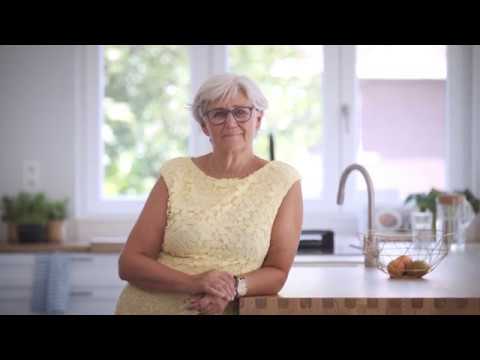After a long course of treatment and her recovery from an aggressive form of breast cancer it was neither physically nor mentally an option for Lydia Henderickx (61) to return to her job as a career coach at Randstad. She now works as a volunteer, guiding people in their careers – and that often includes cancer patients.
returning to work after a serious illness.

'I was really keen to get back to work, return to my job, but the treatment really took its toll on me, both physically and mentally.' - Lydia
'I worked at Randstad for 30 years, predominantly in a commercial role. For the last 15 years I worked with RiseSmart, coaching people during their outplacement or career journey. I attended lots of training and also enjoyed giving my own training within Randstad. I found it very satisfying to coach people with all their work-related questions. It was my objective to help them find new perspectives. It gave me real pleasure.'
'And then I developed an aggressive form of breast cancer. During the treatment it was a matter of survival. You are focused on your body and live from one day to the next. After the physical recovery there is an essential period of mental recovery. Your treatment is over, you are “cured” and you wish to regain control of your life. That's when the questions, fears and doubts arise. Most people recovering from a severe illness go on to lead life more mindfully. What do you want to do with your life? How do you get your professional life back on track? Patients are given little guidance with this.'
'I was really keen to get back to work, return to my job, but the treatment really took it out of me, both physically and mentally. I now find it harder to concentrate, my head is more chaotic. I wanted everything to be as it was before, but did not know how to handle my limitations. I put a lot of thought into this and even went to France on my own for a week to get things clear in my mind. Can I still cope with my job? Am I strong enough? What do I want? What do I need? What is important to me? In the end it took me six months to get things straight – even with all my experience as a career coach.'

'As a volunteer I help patients in getting back to work after their illness, but I also go a step further in offering them a perspective.' - Lydia
'I was told by my health insurance company that there was no need to return to work. The side effects caused by my illness meant I was considered an invalid. But that doesn't mean that I am useless. With my professional background and at my tempo I can still contribute something. When the hospital asked me to do “something” on Fight Cancer Day, it was a perfect match! As a volunteer I help patients in getting back to work after their illness, but also go a step further in offering them a perspective.' Helping them to lead a meaningful life. You will never be the “old you” again and need to get started with the “new you”. You must learn what you are good at and what gives you energy. I do these workshops in the hospital for nothing. It's my way of giving something back to the community.'

